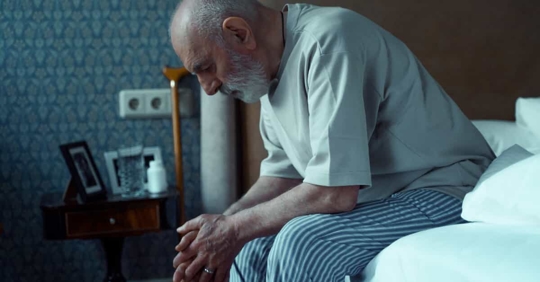Placing a loved one in a nursing home is a difficult decision, often made with the expectation that they will receive compassionate and professional care. Unfortunately, not all nursing homes live up to these expectations, and instances of abuse and neglect can occur.
Identifying signs of nursing home abuse is crucial for protecting the well-being of residents. In this blog, we will explore some of the most common signs of nursing home abuse and provide guidance on what to do if you suspect abuse.
1. Physical Signs
Physical signs of abuse can be the most visible indicators. These may include:
- Unexplained bruises, cuts, or burns.
- Fractures or broken bones without a plausible explanation.
- Bedsores (pressure ulcers) indicating neglect in providing proper care.
- Unexplained weight loss, malnutrition, or dehydration.
- Signs of overmedication or inappropriate use of restraints.
2. Behavioral Changes
Drastic shifts in behavior or emotional well-being are often significant red flags. Watch for signs such as:
- Agitation, withdrawal, or emotional distress.
- Fear or avoidance of specific staff members or areas of the facility.
- Depression, anxiety, or mood swings.
- A sudden unwillingness to speak or communicate.
- Increased confusion or disorientation.
3. Poor Hygiene & Living Conditions
The conditions in which a resident lives and their personal hygiene can reveal neglect or abuse:
- Dirty or unkempt living spaces.
- Soiled bedding or clothing.
- Poor personal hygiene, such as unchanged diapers or uncleaned wounds.
- Unsanitary conditions, including evidence of vermin or insect infestations.
4. Unexplained Financial Changes
Economic exploitation is a form of abuse that can affect nursing home residents. Watch out for:
- Sudden changes in the resident's financial situation, such as missing funds or unexplained expenditures.
- Forged signatures or coerced financial transactions.
- Unauthorized withdrawals from bank accounts or the misuse of financial power of attorney.
5. Medication Irregularities
Improper medication management can be a sign of abuse or neglect:
- Unexplained or frequent changes in medication.
- Administering the wrong medication or dosage.
- Overmedication or sedation without medical justification.
- Withholding necessary medications.
6. Isolation & Withdrawal
Nursing home residents are entitled to social interaction and companionship. Signs of isolation or undue confinement may indicate abuse:
- A sudden lack of participation in communal activities or meals.
- Restrictive measures that limit contact with other residents or the outside world.
- Emotional withdrawal due to fear or intimidation.
What to Do If You Suspect Nursing Home Abuse
If you suspect nursing home abuse, it is essential to take immediate action to protect your loved one and seek justice:
Document Everything: Keep detailed records of all observed signs of abuse, including dates, times, and descriptions.
Speak with the Resident: If possible, talk to your loved one about their experiences and feelings in the nursing home.
Report Your Concerns: Contact the nursing home's administration to express your concerns and request an investigation.
Consult an Attorney: Consider seeking legal advice from an attorney with expertise in nursing home abuse cases. They can guide you on the next steps, including involving law enforcement or filing a civil lawsuit.
Contact Authorities: If the situation is severe or immediate danger is suspected, contact local law enforcement or adult protective services to initiate an investigation.
Seek Medical Attention: Ensure that your loved one receives a thorough medical examination to address any physical or psychological harm caused by the abuse.
Explore Legal Remedies: With the assistance of an attorney, explore legal remedies, which may include pursuing a civil lawsuit against the nursing home.
In Conclusion
Recognizing the signs of nursing home abuse is vital for protecting the safety and well-being of residents. Families and loved ones must remain vigilant, document any suspicious behavior, and take immediate action when abuse is suspected. Legal remedies, including civil lawsuits, can be an effective means of holding negligent or abusive nursing homes accountable for their actions and ensuring that justice is served.
At Brown & Barron, LLC, our experienced nursing home abuse and neglect attorneys have the skills and resources needed to advocate for you and your loved ones. Our team has a long track record of success and promises to always go above and beyond to deliver satisfaction for our clients.
Call 24/7 at (410) 698-1717 for a free consultation or send us a message online.


